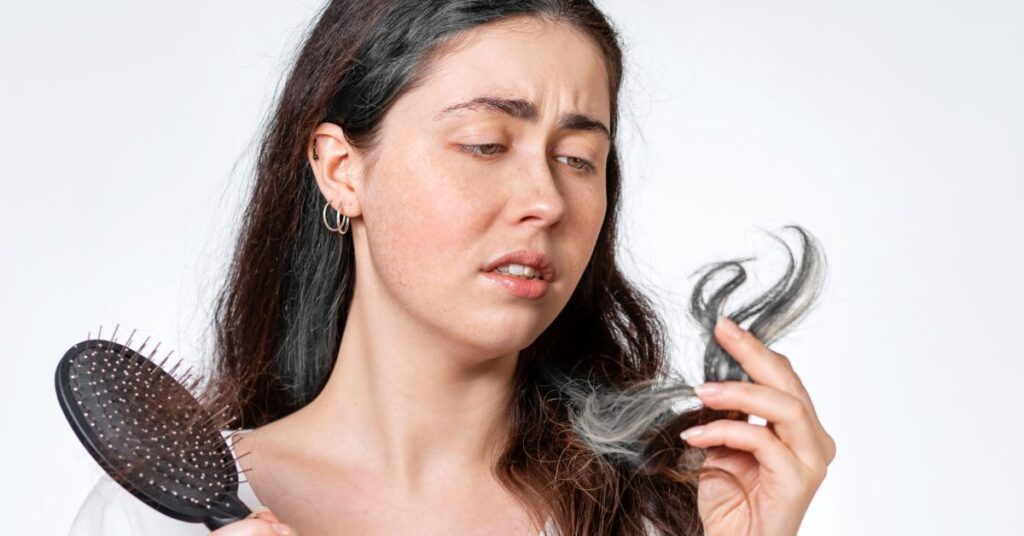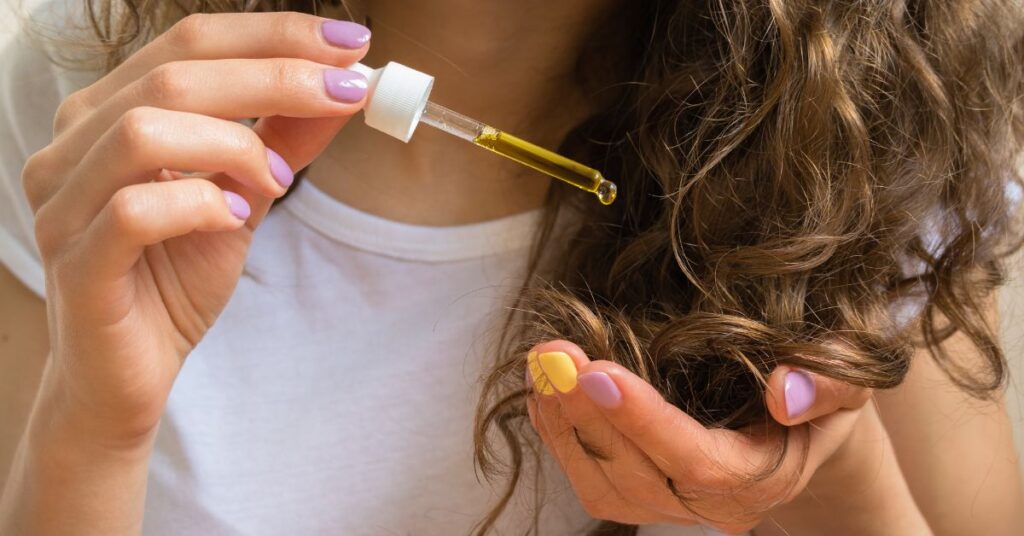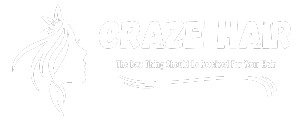
Introduce
Biotin, often hailed as the “hair vitamin,” plays a crucial role in supporting not just hair health, but also overall well-being. This essential nutrient, part of the B-vitamin family, has garnered attention for its potential to boost hair growth and vitality. But its benefits extend beyond just your locks, influencing nail strength, skin health, and metabolic processes. In this article, we’ll delve into the science behind biotin’s impact on hair and overall health, exploring its benefits, dietary sources, supplementation, and more. Whether you’re struggling with hair loss or simply aiming for optimal wellness, understanding the role of biotin could be the key to unlocking healthier hair and a healthier you. Let’s dive in.
Introduction to Biotin
What is biotin?
Biotin, also known as vitamin B7 or vitamin H, is a water-soluble B-vitamin that plays a vital role in various metabolic processes in the body. It acts as a coenzyme, aiding in the metabolism of fats, carbohydrates, and proteins. Biotin is essential for the conversion of food into energy and the synthesis of fatty acids.
Importance of biotin for overall health
In addition to its well-known role in promoting hair growth and maintaining hair health, biotin offers extensive benefits beyond hair care. Biotin is vital for preserving healthy skin, nails, and proper nervous system function. Biotin supports skin health by promoting the production of fatty acids, which are essential for maintaining skin hydration and elasticity. Additionally, biotin facilitates the synthesis of keratin, which is crucial for the structure of skin, hair, and nails.
Beyond its contribution to enhancing physical appearance, biotin is vital for overall metabolic health and hair vitality. It assists in regulating blood sugar levels by supporting carbohydrate metabolism and facilitates the breakdown of fatty acids for energy production hair vitamin . Additionally, biotin is involved in synthesizing neurotransmitters crucial for proper nerve function and cognitive health.
Understanding Hair Growth
Hair growth occurs in several stages: anagen (growth phase), catagen (transitional phase), and telogen (resting phase). During the anagen phase, hair follicles actively produce new hair cells, leading to hair growth. Biotin plays a crucial role in this process by supporting the production of keratin, a protein that forms the structural basis of hair.
How Biotin Affects Hair Health
Biotin supports hair health in multiple ways. Firstly, it helps strengthen the hair follicles, reducing the risk of hair breakage and promoting thicker, healthier strands. Secondly, biotin improves the elasticity of the hair cortex, making it less prone to damage and breakage. Finally, biotin stimulates hair growth by promoting cell proliferation in the hair follicles, leading to increased hair density and thickness.
Research on Biotin and Hair Growth
Several studies have investigated the effects of biotin supplementation hair vitamin on hair growth. While research is ongoing, some studies suggest that biotin hair vitamin supplementation may improve hair growth in individuals with biotin deficiency or hair thinning issues.However, additional research is necessary to confirm these findings and determine the optimal dosage and duration of biotin supplementation for maximizing hair health benefits.

Benefits of Biotin for Hair
Strengthening Hair Follicles
Biotin plays a crucial role in hair vitamin and maintaining the health of hair follicles, the tiny structures from which hair grows. Adequate biotin levels help strengthen the hair follicles, reducing the risk of hair breakage and promoting stronger, more resilient hair strands. Stronger hair follicles also contribute to overall hair health and vitality.
Promoting Hair Growth
Biotin is essential for promoting hair growth by supporting the production of keratin, the protein that makes up the structure of hair. By stimulating cell proliferation in the hair follicles, biotin helps accelerate the rate of hair growth, leading to increased hair density and thickness over time. This can be particularly beneficial for individuals experiencing hair thinning or seeking to improve the appearance of their hair vitamin.
Preventing Hair Loss and Breakage
One of the most well-known benefits of biotin for hair is its potential to prevent hair loss and breakage. Biotin strengthens the hair shaft, making it more resistant to damage and breakage. By improving the elasticity of the hair cortex, biotin helps reduce hair breakage and split ends, resulting in healthier-looking hair with fewer visible signs of damage.
While biotin is not a cure for hair loss conditions such as alopecia or pattern baldness, it may help support overall hair health and minimize hair thinning in some individuals. Combining biotin supplementation with a healthy diet and lifestyle may enhance its effectiveness in promoting hair growth and reducing hair loss.
Biotin’s Impact on Overall Health
Beyond Hair: Benefits for Nails and Skin
- While biotin is commonly linked to promoting hair health, its benefits extend beyond hair care to include nails and skin. Biotin plays a critical role in maintaining nail health by stimulating the production of keratin, the protein responsible for strengthening hair. Sufficient biotin levels can prevent brittle nails, minimize nail breakage, and foster stronger, healthier nails overall.
- In addition to its benefits for nails, biotin also supports skin health. Biotin helps maintain the integrity of the skin by promoting the production of fatty acids, which are essential for skin hydration and elasticity. By supporting the synthesis of keratin in the skin, biotin contributes to the overall health and appearance of the skin, helping to maintain a youthful and vibrant complexion.
Biotin’s Role in Metabolism
- Biotin plays a critical role in energy metabolism, helping the body convert carbohydrates, fats, and proteins from food into energy. As a coenzyme, biotin is involved in several key metabolic pathways, including gluconeogenesis (the production of glucose from non-carbohydrate sources), fatty acid synthesis, and amino acid metabolism. By supporting these metabolic processes, biotin helps ensure the efficient utilization of nutrients for energy production and overall metabolic health.
Supporting Nervous System Function
- Biotin is essential for the proper functioning of the nervous system, playing a role in neurotransmitter synthesis and nerve signal transmission. Adequate biotin levels are necessary for the synthesis of neurotransmitters such as serotonin, dopamine, and gamma-aminobutyric acid (GABA), which are involved in regulating mood, cognition, and motor function. Biotin also contributes to the maintenance of myelin, the protective sheath that surrounds nerve fibers and facilitates nerve impulse conduction.
Dietary Sources of Biotin
Foods Rich in Biotin
Biotin is present in a wide range of foods, including both plant-based and animal-based sources.Including biotin-rich foods in your diet can help ensure you’re getting an adequate intake of this essential nutrient. Some of the best dietary sources of biotin include:
- Eggs: Egg yolks are one of the richest sources of biotin, with one large egg providing about 10 micrograms of biotin.
- Meat and Poultry: Lean meats such as chicken and beef are good sources of biotin. Organ meats like liver are particularly high in biotin.
- Fish: Fatty fish like salmon, trout, and sardines contain significant amounts of biotin, along with other essential nutrients like omega-3 fatty acids.
- Nuts and Seeds: Nuts and seeds such as almonds, peanuts, walnuts, and sunflower seeds are rich in biotin. They make for convenient and nutritious snacks or additions to meals.
- Legumes: Legumes like beans, lentils, and chickpeas are excellent plant-based sources of biotin. They’re also rich in fiber and protein, making them a healthy addition to any diet.
- Dairy Products: Milk, cheese, and yogurt contain biotin, although the amount may vary depending on the processing and fat content of the dairy product.
- Whole Grains: Whole grains like oats, barley, and wheat germ are good sources of biotin. Incorporating whole grains into your diet can provide a variety of essential nutrients, including biotin.
Recommended Daily Intake
- The recommended daily intake of biotin varies depending on factors such as age, sex, and overall health status. However, the general recommended intake for adults is around 30 to 100 micrograms per day. Pregnant and breastfeeding women may require higher amounts of biotin to support fetal development and milk production.
- While it’s possible to meet your biotin needs through diet alone, supplementation may be necessary for individuals with certain health conditions or dietary restrictions that make it difficult to obtain adequate biotin from food alone. If you’re considering biotin supplementation, it’s essential to consult with a healthcare professional to determine the appropriate dosage for your individual needs.

Conclusion
In conclusion, biotin emerges as a vital nutrient with multifaceted benefits extending far beyond its reputation as a “hair vitamin.” Its pivotal role in promoting hair health, bolstering nail strength, enhancing skin vitality, and supporting metabolic processes underscores its significance in overall well-being. While biotin-rich foods offer a natural source of this essential nutrient, supplementation may be considered to meet specific needs. As ongoing research delves deeper into the nuances of biotin’s effects, understanding its diverse impacts empowers individuals to make informed choices towards nurturing healthier hair, skin, and overall health. By embracing the potential of biotin, we embark on a journey towards unlocking vitality and radiance from within.read more
FAQs (Frequently Asked Questions)
1. Can biotin help with hair loss?
Biotin is often touted as a remedy for hair loss, but its effectiveness can vary depending on the underlying cause of hair loss. While biotin deficiency can contribute to hair thinning, supplementing with biotin may only be effective in cases where deficiency is the root cause. It’s essential to consult with a healthcare professional to determine the underlying cause of hair loss and explore appropriate treatment options.
2. Are there any side effects of biotin supplementation?
Biotin is generally considered safe when taken at recommended doses. However, high doses of biotin supplements can cause potential side effects such as digestive issues, skin rashes, and interactions with certain medications. It’s crucial to follow dosage recommendations and consult with a healthcare provider before starting any new supplement regimen, especially if you have underlying health conditions or are taking medications.
3. Can I get enough biotin from my diet alone?
While it’s possible to meet your biotin needs through diet alone by consuming biotin-rich foods such as eggs, meat, fish, nuts, seeds, legumes, dairy products, and whole grains, supplementation may be necessary for individuals with specific dietary restrictions or health conditions. Consulting with a registered dietitian or healthcare professional can help determine if supplementation is needed based on your individual dietary habits and health status.
4. How long does it take to see results from biotin supplementation for hair growth?
The timeframe for seeing results from biotin supplementation for hair growth can vary from person to person. While some individuals may notice improvements in hair thickness and texture within a few weeks of starting biotin supplementation, others may require several months to see noticeable changes. Consistency with supplementation and maintaining a healthy lifestyle can contribute to optimal results.
5. Can biotin help with conditions like acne or brittle nails?
Biotin is often promoted for improving skin health and strengthening nails, but scientific evidence supporting its efficacy for these purposes is limited. While some individuals may experience improvements in acne or brittle nails with biotin supplementation, more research is needed to confirm these effects conclusively. Additionally, other factors such as overall skincare routine and nail care practices may also influence outcomes.
6. Is biotin safe to take during pregnancy or breastfeeding?
Biotin is generally considered safe for pregnant and breastfeeding women when taken at recommended doses. Adequate biotin intake is essential during pregnancy and breastfeeding to support fetal development and milk production. However, as with any supplement, it’s important to consult with a healthcare professional before starting biotin supplementation during pregnancy or breastfeeding to ensure safety and efficacy.

